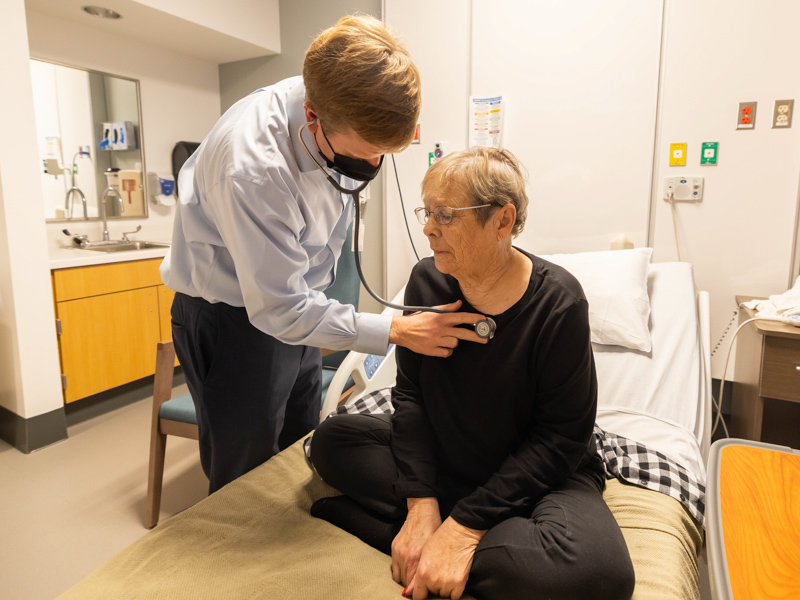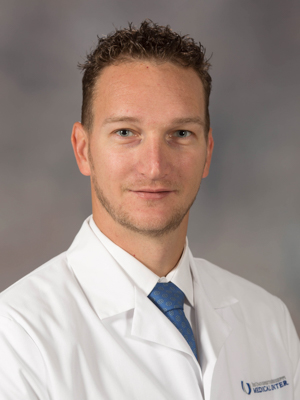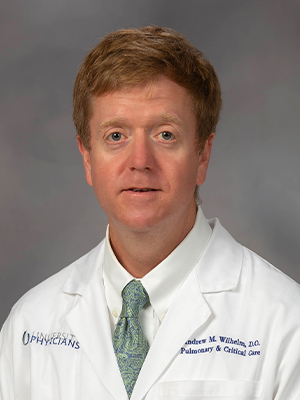UMMC selected as study site for new COPD treatment

After suffering from chronic obstructive pulmonary disease for years, Deborah Enzweiler was excited to see a Facebook post recruiting participants for a study on the effectiveness of a new treatment.
“I decided I might as well try it,” said the 69-year-old, a pack-a-day smoker for 50 years before quitting a decade ago.
“When you are scared to get on a plane because of your coughing and people looking at you like you have the plague, you know it’s time for help,” said the Richland resident.
Enzweiler was one of the first patients evaluated at the University of Mississippi Medical Center to participate in the RheSolve Study, which is investigating the safety and effectiveness of bronchial rheoplasty for the treatment of chronic bronchitis in adult COPD patients.
The inflammatory disease, which obstructs airflow to the lungs, usually results from long-term smoking and worsens without treatment.
UMMC is one of 40 centers in the United States, Canada and Europe selected to study RheOx, a thin flexible tube that, once inserted through the mouth into the right lung, “delivers short bursts of electrical energy to the inner walls of the bronchi, eliminating the mucus-producing cells.”
New cells that produce less mucus will grow in the days that follow. After a month, researchers treat the left lung.

The study is particularly significant in Mississippi because of the limited options for treating COPD in a state with such a high incidence of the disease, said Dr. Michal Senitko, associate professor of medicine and surgery. The principal investigator hopes to enroll as many as 40 participants in the randomized, double-blind trial, which follows patients for two years.
“In parallel, we have been working to bring other interventional treatment options for severe COPD patients to keep up with GOLD [Global Initiative for Chronic Obstructive Lung Disease] COPD guidelines,” said Senitko.
Participants have a 2 to 1 chance of receiving the treatment over the placebo. Those in the placebo group will have an opportunity to crossover to the treatment group after 12 months, said Senitko.
To qualify for the study, patients must meet these minimal criteria:
- long-term smokers who quit at least six months ago
- a diagnosis of COPD, with a productive cough
After patients complete the screening process, researchers determine if they meet all inclusion and exclusion criteria before formally enrolling them in the study.
Mississippi is among the top seven states with the most COPD deaths, hospitalizations and diagnosis, according to the Centers for Disease Control and Prevention.
The American Lung Association reports that though more than 214,000 Mississippians have been diagnosed with the chronic disease, many more do not know they have it. Nationally, 117,000 people die annually of COPD, the only disease for which the number of deaths continues to grow.
Dr. Andrew Wilhelm, division chief for pulmonary and critical care medicine, and co-investigator, sees between 10 and 20 COPD patients each week.

“The biggest challenge in COPD is that it is a progressive disease,” said Wilhelm. “Every person’s lung function starts to decline in young adulthood, regardless of smoking. Smoking accelerates it. If someone quits smoking, the lung function goes back to regular rate of decline. It does not get better.”
Current treatments include inhalers, which can help with symptoms and prevent exacerbations of the lung disease, but they won’t fix the problem, said Wilhelm. For those who qualify, oxygen therapy can prolong life, but it limits patients’ activity level.
“Oxygen, symptom relief and minimizing risk of accelerated progression are the best we have to offer,” said Wilhelm. “Unfortunately, many have symptoms that are severe enough that inhalers are inadequate.”
Enzweiler, who’s had countless upper respiratory infections over the years, is one such patient. She’s seen her bronchitis symptoms worsen in the last year or so. Though she now uses an inhaler, the coughing and shortness of breath persist.
“I am not able to go and do like I would like,” she said. “I get tired easily and have to sit down.”
The RheOx study is promising because it targets COPD patients like Enzweiler who are already on optimal therapy but still have severe symptoms, said Wilhelm.
“It is an opportunity for us to see if this therapy will benefit people that have already done the right thing and quit smoking but remain limited because of a productive cough.”
Click here to see if you’re a candidate for enrollment in the study.


